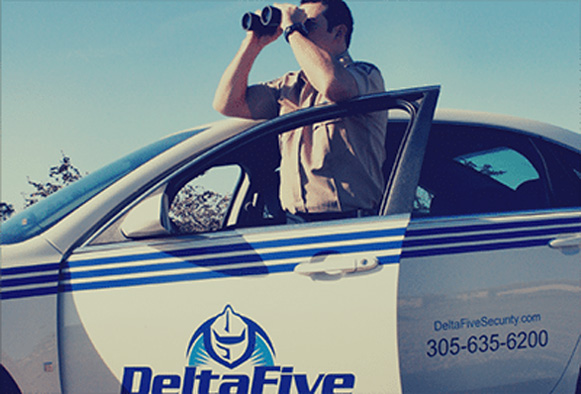Delta Five Security offers armed security guards in Miami, Broward, and West Palm Beach!
For firms that work with government organizations, power plants and other high-risk organizations, there are best practices for hiring and training security officers who carry firearms. Insurers examine a number of factors, from the firm’s loss history to hiring procedures, pre-employment screenings, supervision, licensing and training. In a hard insurance market, differentiators such as training are even more important.
Insurers prefer armed security officers who are former law enforcement officers. These individuals typically have extensive firearms training and experience. In lieu of retired police officers, it is best to only arm highly trained professionals with a positive track record. An insurer will inquire about pre-employment screening and expect a firm to have a system for criminal background checks, personal interviews and references. Furthermore, savvy insurers may even call the state department that licenses security guard companies in order to find out about complaints or negative reports.
Quality training is a key risk management tool, which will also help keep insurance rates low and quality insurance available. Fundamental training is crucial for any security officer. However, armed officers require far more than the basic training provided to those in observe and report roles; they need situational training for the industry they serve, training in proper use of force and, of course, firearms training. Insurers will expect armed security officers to be provided with training above and beyond state standards. Our data shows security officers that undergo high-quality training have fewer accidents and handle incidents better.
The private security industry had been growing rapidly well before the Sandy Hook tragedy captured the attention of our country late last year. Since the beginning of the recession in 2007-08, local governments nationwide had been slashing budgets and shrinking police forces. As this trend continues, private security firms have been called on increasingly to fill the gap. Media attention after a mass shooting simply fuels this growth.
Both the chief security officers and the private security firms with which they contract should consider carefully the use of armed officers. Insurers and risk managers are constantly gathering data and evaluating risks, and they offer a perspective that should play an important role in these decisions. There are benefits, but also risks and costs when arming security officers.
In the past year, highly publicized mass shootings — especially the Sandy Hook Elementary School tragedy in December — have made the call for armed security officers commonplace. To many, it seems logical to fight fire with fire; that is, using armed officers to combat armed criminals and prevent tragedies from occurring.
Security executives and security officer firms, in turn, call their insurance companies to find out how armed officers will affect their insurance coverage. When insurers evaluate the use of armed officers, they quite often see risks outweigh the benefits for the average company or organization – risks that have a significant impact on both the availability and cost of insurance coverage.
Contact us NOW for information on how we can assist you
info@DeltaFiveSecurity.com

